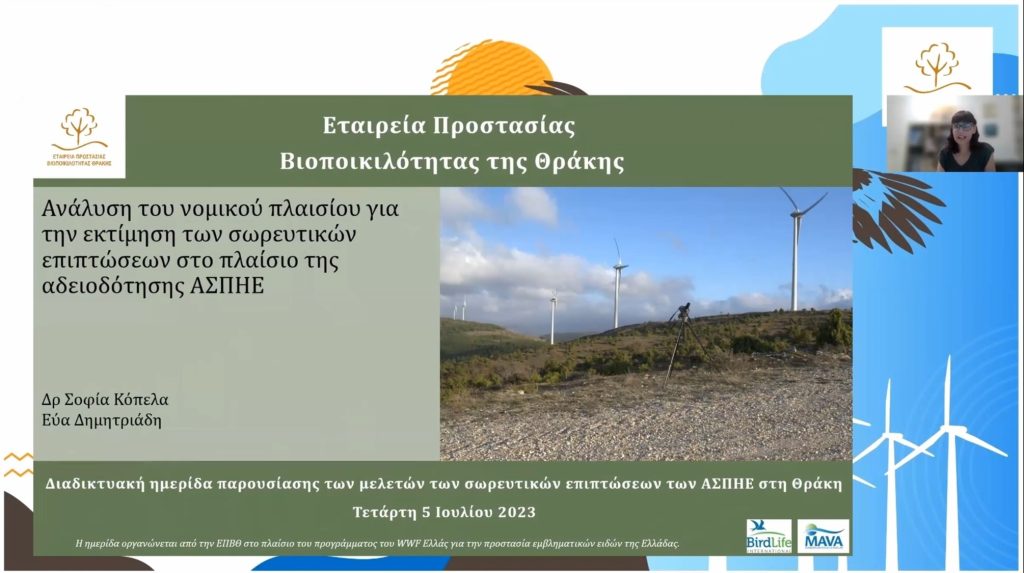What should we be most concerned about? The environmental impacts of each wind turbine separately or all together, current and future?

For the first time in Greece, the cumulative impacts of the wind farms on species and habitats in Thrace were assessed through a project implemented by the Society for the Protection of Biodiversity of Thrace (SPBT).
An innovative study (consisting of six distinct studies) anticipates addressing the (knowledge) gaps of cumulative impacts assessment during environmental licensing procedure of wind farms in Thrace. SPBT has already completed and presented the study of cumulative impacts of wind farms in Thrace. In practice, impacts of wind farms on biodiversity are mainly assessed on a case-by-case basis for each wind farm, thus their impacts are significantly underestimated. As a result, because of the case-by-case assessment (the last 20 years usually reaches conclusions of low or medium impact), 276 wind turbines were installed in Evros and Rhodopes, whose impacts on species (birds and bats) and habitats are already very serious, threatening even populations of birds of prey with extinction.
On 5th and 6th of July 2023, SPBT presented in two online events (in Greek and English) the six studies that were completed at the end of 2022, in which were analysed and evaluated:
- the legal framework for cumulative impact assessment,
- the environmental conditions approval decisions and the environmental impact assessment/monitoring studies of the wind farms,
- the impacts on habitats,
- the impacts on bats,
- the impacts related to collision and displacement of birds and
- the Cinereous vulture population viability.
From the studies, it emerged that the national legislation is incomplete and insufficient regarding the cumulative impacts assessment, as well as the environmental impact assessment/monitoring studies (before and after the construction of wind farms) were also incomplete and insufficient. If more wind turbines are installed in these areas of Thrace in the future, then the cumulative impacts on environment will be very serious. Important habitats of EU interest will be lost, mass deaths of bats will increase and the collision and displacement of birds of prey f will affect their vulnerable populations, even threatening them with extinction.
The events were very well received since more than 250 people participated in total. The participants were representatives from wind farm companies/investors, scholars, scientists, competent authorities and bodies from Greece and from the European Commission, involved in environmental licensing, management and environmental protection and citizens.
"Our goal was to fill in the knowledge gaps that admittedly existed until now and we hope that the studies will be used by investors and authorities during the planning stage, by consultants/researchers when assessing the impacts and by the competent authorities when evaluating the of proposed projects for licensing. In this way, the studies could be a decisive contribution to stop the problematic siting of wind farms in Thrace and to reduce the impacts on biodiversity", said Lefteris Kapsalis, scientific associate of SPBT.
SPBT will continue promoting initiatives to reduce threats to biodiversity of Thrace and preserve its natural heritage for future generations.
The studies and their synopses are available here.







